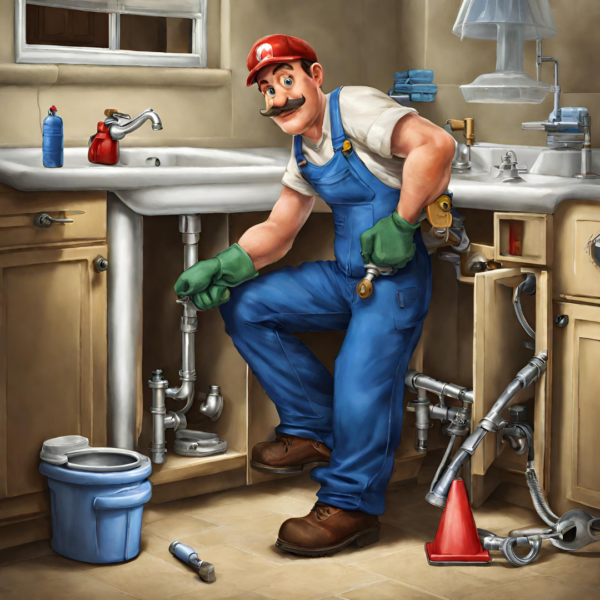Introduction: Encountering an unexpected plumbing crisis has the potential to transform an otherwise routine day into a state of disarray. Acting swiftly is crucial to minimize damage and prevent additional issues, whether a burst pipe, a leaking water heater, or a blocked drain. This guide outlines essential steps to take during a plumbing emergency.
1. Maintain Composure: The first crucial step is to stay composed. Allowing panic to set in can hinder your ability to think rationally and respond efficiently. Inhale deeply and evaluate the situation with a focused and clear mindset.
2. Identify the Water Shut-Off Valve: Know your residence’s primary water shut-off valve. Turning off the water supply during a major leak or burst pipe can prevent further damage. Usually situated in proximity to the water meter or at the junction of the main water line with your residence.
3. Disable the Water Heater: In a plumbing emergency related to the water heater, deactivate the power or gas supply. This prevents the heater from heating water during the system’s vulnerability, minimizing the risk of scalding and further damage.
4. Contain the Leak: Use buckets, towels, or containers to collect and contain water from leaks. Placing a bucket under a dripping pipe or using towels to absorb water can help minimize damage to floors and belongings.
5. Address Small Leaks with Temporary Fixes: For minor leaks, use plumbing tape, pipe clamps, or repair kits as temporary solutions until a professional plumber can assess and fix the issue. These fixes help reduce water damage in the short term.
6. Evacuate the Space: Relocate valuable items, furniture, and electronic devices away from the impacted region. This prevents further damage and facilitates easier access for plumbing professionals. 7. Call a Professional Plumber: Contact a licensed and experienced plumber after taking immediate steps to contain the situation. Explain the emergency situation and furnish relevant details to aid them in readiness for the assignment.
8. Record the Harm: Capture images or videos of the plumbing emergency and consequential damage. This documentation proves beneficial for insurance claims and aids the plumber in gaining a clearer understanding of the problem’s magnitude.
9. Turn Off Electricity in Hazardous Situations: Exercise extreme caution if water is near electrical outlets or wiring. Deactivate the electricity in the impacted zone to mitigate the potential for electrical shock. If unsure, wait for professional assistance.
10. Preventive Measures for the Future: Work with your plumber to identify underlying causes and implement preventive measures after addressing the immediate issue. Routine upkeep and examinations can prevent future plumbing crises.
11. Isolate and Address Gas Leaks: In a plumbing emergency with a suspected gas leak, promptly shut off the gas supply. Ensure adequate ventilation, evacuate the premises, and get in touch with your gas company or emergency services. Immediate attention is imperative in the case of gas leaks.
12. Temporary Pipe Patching for Burst Pipes: In the case of a burst pipe, use pipe clamps, rubber sheets, or a pipe repair kit to create a temporary patch. Securely wrap the damaged area to stem the water flow until a professional plumber can replace or repair the affected pipe.
13. Emergency Drain Repair: Use a plunger or drain snake to fix severe drain blockage or backup. Should the issue persist, contact a certified plumber for urgent drain repair services. Avoid chemical drain cleaners, as they may exacerbate the issue. 14. Communicate with Neighbors: When a plumbing emergency might affect neighbouring units, inform neighbours of the issue. Prompt communication can help them take preventive measures and avoid potential damage to their property.
15. Prepare an Emergency Kit: Assemble a basic emergency kit with buckets, towels, plumbing tape, a pipe wrench, and a flashlight. These tools can be valuable during a plumbing emergency and may help mitigate immediate issues until professional help arrives.
Conclusion: Facing a plumbing emergency requires quick thinking and decisive action. By staying calm, knowing how to shut off water and gas supplies, and taking temporary measures to contain the situation, you can minimize damage to your property. Additionally, communicating with neighbors, documenting the damage, and having an emergency kit can contribute to a more efficient and organized response. Remember, while temporary fixes can be helpful, consulting a professional plumber is essential for a thorough and lasting solution.



Speak Your Mind